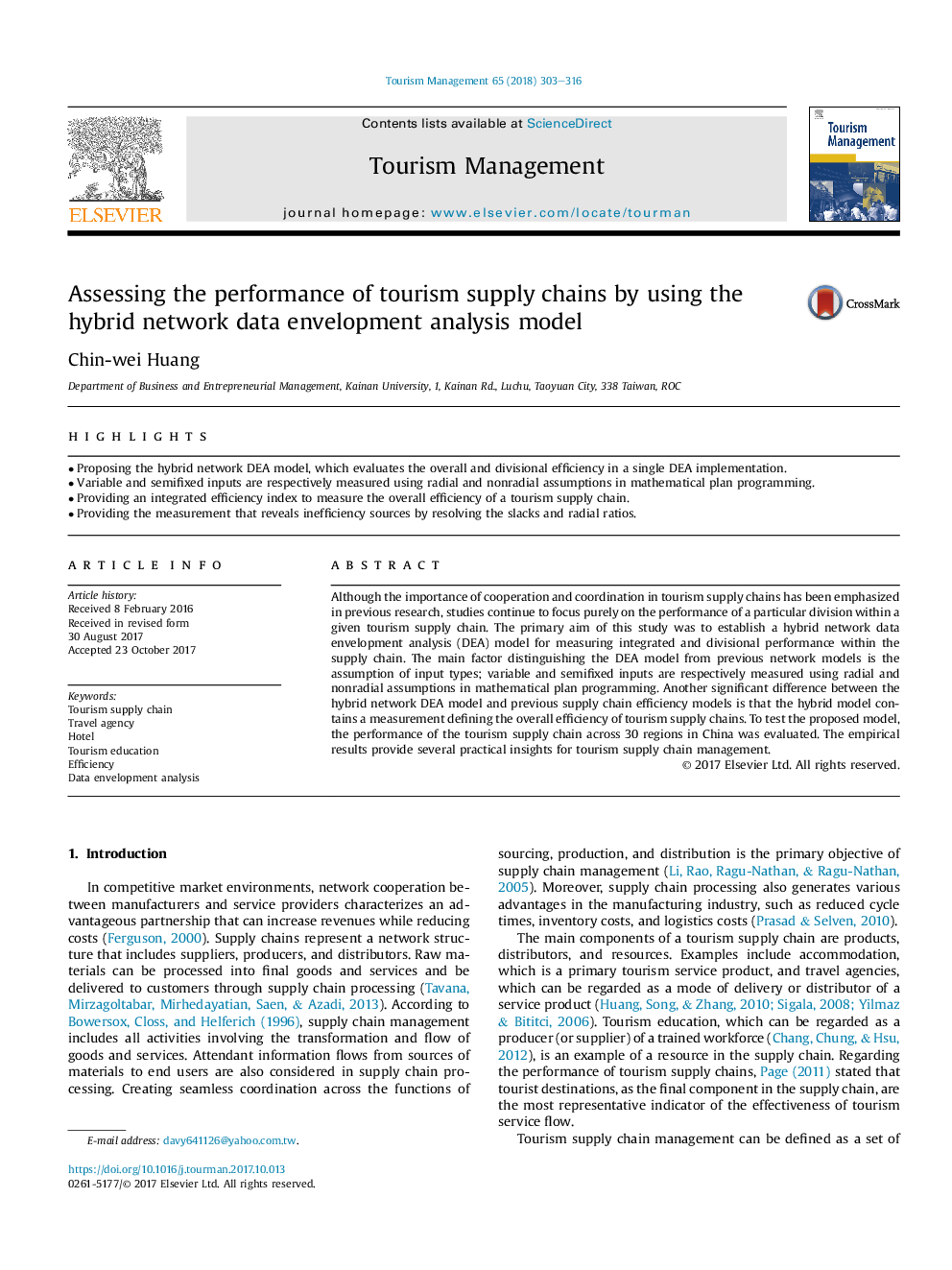| Article ID | Journal | Published Year | Pages | File Type |
|---|---|---|---|---|
| 7421151 | Tourism Management | 2018 | 14 Pages |
Abstract
Although the importance of cooperation and coordination in tourism supply chains has been emphasized in previous research, studies continue to focus purely on the performance of a particular division within a given tourism supply chain. The primary aim of this study was to establish a hybrid network data envelopment analysis (DEA) model for measuring integrated and divisional performance within the supply chain. The main factor distinguishing the DEA model from previous network models is the assumption of input types; variable and semifixed inputs are respectively measured using radial and nonradial assumptions in mathematical plan programming. Another significant difference between the hybrid network DEA model and previous supply chain efficiency models is that the hybrid model contains a measurement defining the overall efficiency of tourism supply chains. To test the proposed model, the performance of the tourism supply chain across 30 regions in China was evaluated. The empirical results provide several practical insights for tourism supply chain management.
Related Topics
Social Sciences and Humanities
Business, Management and Accounting
Strategy and Management
Authors
Chin-wei Huang,
